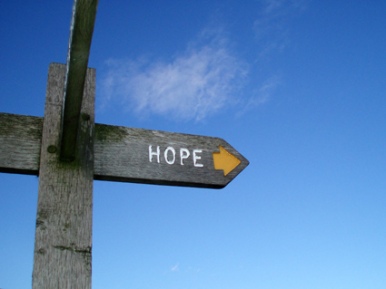There is surely a future hope for you, and your hope will not be cut off. – Proverbs 23:18

Our show today is all about HOPE. A salv to last weeks poetry of FEAR we’ll take a slightly more optimistic attitude of mind to look at what role hope plays in our lives. The things we hope for in people, politics, health and in society. Puritan American poet Emily Dickinson famously called HOPE
The thing with feathers
That perches in the soul
And sings the tune without the words
And never stops at all
Creating a beautiful metaphorical description of hope as a bird singing in the soul. And it’s interesting she does that because two symbols of hope that come to mind are the Dove and the Swallow, the swallow being the first bird to appear at the end of Winter, heralding the beginning of Spring. She goes on:
And sweetest – in the Gale – is heard –
And sore must be the storm –
That could abash the little Bird
That kept so many warm –
I’ve heard it in the chillest land –
And on the strangest Sea –
Yet – never – in Extremity,
It asked a crumb – of me.
Meaning that nothing, not even the worst hardship or storm could weaken the strength and resolve of the human spirit of HOPE. So with the help of our featured poets we’ll be looking at the places we might expect to find hope, or where we may be surprised to find it with Lisel Mueller. It is spiritual and physical we are surrounded by it. ‘It hovers in the dark corners’ she says, it’s hope that’s in the earthworm segment, the dogs tail, ‘it drops’ she says ‘from the mushroom gills.’ Sometimes it hides in these places making it difficult for us to maintain hope in tough times, but it is there, inventing our future, inspiring us, it is she says ‘the singular gift we cannot destroy in ourselves’. Meaning hope is intrinsic to life. It is our survival mechanism.
Khaled Mattawa reminds us that it was the hope of a better future that kick-started the Arab Spring five years ago. Young people in the Middle East and North Africa led a major uprising demanding political, economic and social change. In the early days of the revolution, Mattawa wrote ‘Now that we have tasted hope, we would sooner die than seek any other taste to life’. Hope in the sense of it being a provocative day-dream as opposed to a passive one, people were not content to just accept the bad that exists. It’s true that many cities involved in the uprisings were left traumatised and beleaguered, and fatal mistakes were made, but there were victories, not just ends, but beginnings, evidence that sometimes we can win, hope and encouragement to keep going.
Irish poet Derek Mahon reconciles the shadow and the light to reassure us that despite the worst that is certain to happen, everything is going to be alright.
You know hope can an have impact on everything from health to work to personal meaning. And as we’ve learned from our poets today, the hard times are going to come but as Emily Dickinson said, it would take some sore storm to abash the bird of hope. But when I think of Ernest Dowson’s poem on how fleeting life and everything in it is, I just wonder how much it really matters whether we choose hope or despair, neither are wrong, they each reflect human feeling. Story-teller Maria Kallman says We hope. We despair. We hope. We despair. This is what governs us. We have a bipolar system. And I suppose, at the end of the day, we do whatever we can to get ourselves through situations. I know for me anyway I can’t be positive everyday, but on those days, when I can’t be hopeful that everything is getting better I try, at least, to hope that everything is not getting any worse.
Hope is important, because it can make the present moment, less difficult to bear. If we believe that tomorrow will be better, then we can bear a hardship today.
Thich Nhat Hanh
Music today from Glen Hansard, Foy Vance, India Arie and more ….